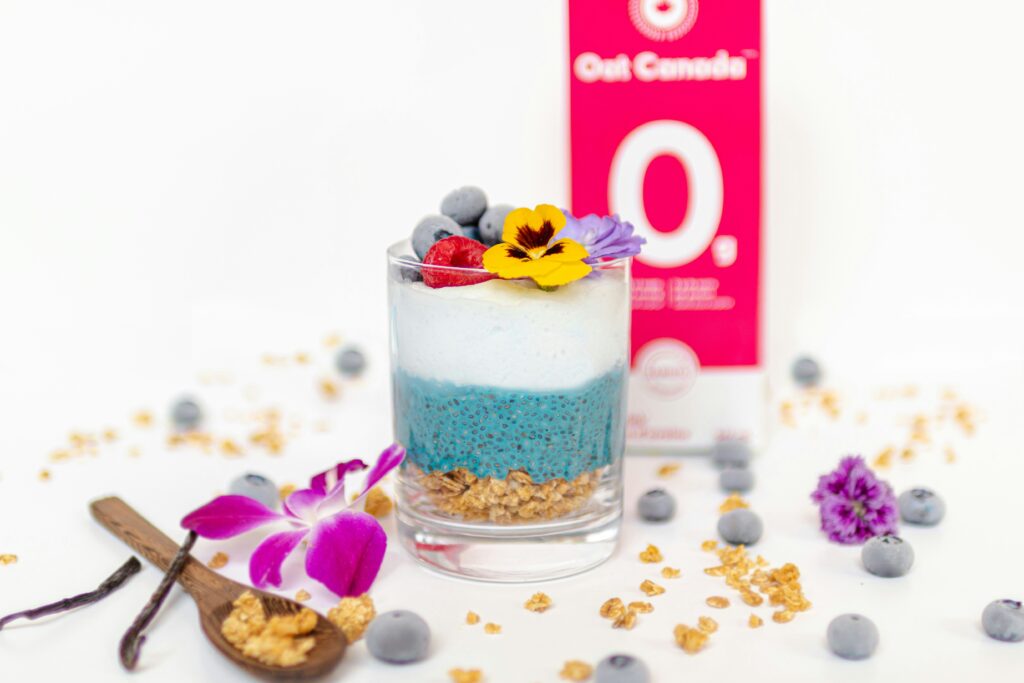If you’re a proud owner of a Border Collie, then you know how important it is to provide them with the best nutrition possible. But with so many options available, it can be overwhelming to choose the right dog food for your furry friend. That’s why we’ve created the ultimate guide to help you navigate through the world of dog food and find the perfect option for your Border Collie. From understanding their unique dietary needs to exploring top brands and ingredients to look for, this guide has got you covered. So let’s ensure your Border Collie stays healthy and happy with the best dog food out there.

Understanding the Nutritional Needs of Border Collies
The Importance of a Balanced Diet for Border Collies
When it comes to keeping your Border Collie healthy and thriving, providing them with a balanced diet is of utmost importance. A balanced diet ensures that your furry friend receives all the essential nutrients they need to support their overall well-being. A well-nourished Border Collie will have a shiny coat, strong muscles, and a robust immune system, enabling them to live a long and happy life.
Specific Nutritional Requirements of Border Collies
Border Collies have specific nutritional requirements that must be met to keep them healthy and active. As a highly energetic breed, they require a diet that is rich in protein to support muscle development and repair. Additionally, they need high-quality carbohydrates for sustained energy levels throughout the day. Fats and essential fatty acids play a crucial role in their diet as well, supporting brain health, maintaining a healthy coat, and providing necessary energy. Finally, Border Collies require a variety of essential vitamins and minerals to support their overall health and well-being.
Choosing Quality Ingredients for Your Border Collie’s Food
Identifying Quality Protein Sources
Protein is an essential component of your Border Collie’s diet, as it plays a vital role in muscle growth and repair. When selecting dog food for your Collie, it’s important to choose products that contain high-quality protein sources. Look for ingredients like chicken, beef, salmon, and eggs, as these are excellent sources of animal-based protein. Avoid products that list vague protein sources, such as “meat meal” or “by-products,” as these may not provide the necessary amino acids and nutrients.
Selecting Whole Grains and High-Quality Carbohydrates
Carbohydrates are an essential energy source for your Border Collie. However, not all carbohydrates are created equal. Opt for dog food that includes whole grains like brown rice, oats, and quinoa, as these provide important fiber, vitamins, and minerals. Avoid dog foods that contain excessive amounts of fillers like corn or wheat, as these ingredients offer little nutritional value and can contribute to digestive issues in some dogs.
The Role of Fats and Essential Fatty Acids in Border Collie’s Diet
Fats and essential fatty acids are important for your Border Collie’s overall health. They provide a concentrated source of energy and help maintain a healthy coat and skin. Look for dog foods that contain healthy fats, such as chicken fat, fish oil, or flaxseed oil. These ingredients provide omega-3 and omega-6 fatty acids, which support brain function and contribute to a shiny and lustrous coat.
Essential Vitamins and Minerals for Border Collies
Border Collies require a range of essential vitamins and minerals to support their overall health and well-being. Essential vitamins include vitamin A, which supports vision and immune health, and vitamin D, which aids in calcium absorption and bone health. It’s also important to ensure that your Collie gets an adequate supply of essential minerals like calcium, phosphorus, and zinc. These nutrients are crucial for healthy teeth, bones, and the immune system. Look for dog foods that list specific vitamins and minerals on their ingredient list, highlighting their commitment to providing a nutritionally complete diet.
Avoiding Common Allergens and Sensitivities in Border Collies
Common Food Allergens for Border Collies
Just like humans, Border Collies can develop food allergies or sensitivities. Some common allergens for dogs, including Border Collies, include chicken, beef, dairy, wheat, and corn. If you notice symptoms such as itching, hot spots, diarrhea, or vomiting after feeding your Collie a certain food, it may be an indication of an allergy or sensitivity. If you suspect a food allergy, consult with your veterinarian to determine the best course of action for your furry friend.
Identifying and Eliminating Problematic Ingredients
If you suspect your Border Collie has a food allergy or sensitivity, it’s important to identify and eliminate the problematic ingredient from their diet. This can be done through an elimination diet, where you gradually remove potential allergens from their food and reintroduce them one by one to identify the culprit. Alternatively, you can opt for dog food specifically formulated for dogs with food allergies or sensitivities. These products often use alternative protein sources, such as duck or venison, and exclude common allergens like chicken or beef.
Feeding Border Collie Puppies for Optimal Growth and Development
Understanding the Unique Nutritional Needs of Border Collie Puppies
Border Collie puppies have unique dietary needs due to their rapid growth and development. During this critical stage, they require a diet that is specifically formulated to support their growing bodies. Puppies need a higher amount of protein to support muscle and tissue development, as well as calcium and phosphorus for bone health. It’s important to choose a puppy food that meets the Association of American Feed Control Officials (AAFCO) guidelines for growth to ensure your Border Collie puppy receives the necessary nutrients.
Choosing Age-Appropriate Puppy Food
When selecting food for your Border Collie puppy, look for a product specifically designed for puppies. These formulas are formulated to provide the right balance of nutrients to support their growth and development. Puppy food often contains higher amounts of protein, as well as essential vitamins and minerals needed for optimal growth. It’s important to transition your Collie puppy to adult dog food gradually as they reach their full size and maturity.
Feeding Frequency and Portion Control for Puppies
Feeding frequency and portion control are essential factors to consider when feeding a Border Collie puppy. Puppies have smaller stomachs and higher energy requirements, so they need to be fed smaller, more frequent meals throughout the day. Generally, puppies should be fed three to four times a day until they are around six months old, and then transitioned to two meals per day. Consult with your veterinarian to determine the appropriate portion sizes for your puppy based on their age, weight, activity level, and overall health.

Maintaining a Healthy Weight for Your Border Collie
Determining Your Border Collie’s Ideal Weight
Maintaining a healthy weight is crucial for your Border Collie’s overall health and well-being. To determine if your Collie is at a healthy weight, you should be able to easily feel their ribs without pressing too hard and see a noticeable waist when looking at them from above. If you’re unsure about your Collie’s weight or need guidance, consult with your veterinarian who can help assess their body condition and provide recommendations.
Portion Control and Feeding Guidelines
Portion control is key to keeping your Border Collie at a healthy weight. Follow the feeding guidelines provided on your dog food packaging, but remember that these are just general recommendations. Factors such as age, activity level, and metabolism can all affect your Collie’s energy requirements. Monitor your Collie’s weight and body condition regularly, and adjust their portions accordingly. If you notice your Collie gaining weight, it might be time to reduce their daily calorie intake.
Incorporating Exercise and Activity
In addition to managing their diet, providing regular exercise and mental stimulation is crucial for maintaining a healthy weight in Border Collies. These intelligent and high-energy dogs thrive on physical activity and mental challenges. Engage in activities such as daily walks, hikes, obedience training, or playing fetch to keep your Collie physically fit and mentally stimulated. Regular exercise not only helps burn calories but also promotes muscle tone, cardiovascular health, and mental well-being.
Considering Breed-specific Health Issues in Border Collies
Hip Dysplasia and Joint Health
Border Collies, like many other medium to large dog breeds, are prone to hip dysplasia and other joint issues. Maintaining a healthy weight and providing proper nutrition are essential for minimizing the risk of these conditions. Choosing dog food that contains joint-supporting ingredients such as glucosamine and chondroitin can help promote optimal joint health in your Collie. Additionally, avoiding excessive high-impact activities during their growth stage can be beneficial for protecting their developing joints.
Eye and Vision Care
Border Collies are known for their striking eyes, and it’s important to prioritize their eye and vision health. Providing a diet rich in antioxidants, such as vitamin C and E, can support eye health and reduce the risk of age-related vision problems. Additionally, regular check-ups with a veterinarian ophthalmologist can help detect any potential eye issues early on, ensuring that your Collie’s vision is protected.
Heart Health and Genetic Predispositions
Genetic predispositions can make certain breeds more susceptible to specific health issues. In the case of Border Collies, they may be at a higher risk of developing certain heart conditions, including mitral valve disease and dilated cardiomyopathy. While diet alone cannot prevent these conditions, providing your Collie with a high-quality diet that includes heart-healthy ingredients such as lean proteins, omega-3 fatty acids, and antioxidants can support overall heart health and minimize the risk of developing these conditions.

Understanding Different Types of Dog Food Options
Dry Dog Food (Kibble)
Dry dog food, also known as kibble, is one of the most common types of dog food available on the market. It offers convenience, a long shelf life, and is often more affordable compared to other options. Dry dog food is formulated to provide a complete and balanced diet for dogs and can be a suitable choice for Border Collies. However, it’s important to choose a high-quality dry food that contains real meat as the first ingredient and avoids excessive fillers and artificial additives.
Wet Dog Food (Canned)
Wet dog food, often referred to as canned food, is another popular option for pet owners. It typically contains higher moisture content compared to dry dog food, which can be beneficial for dogs that don’t drink enough water or have specific dietary needs. Wet dog food can be a tasty option for picky eaters or dogs with dental issues. However, it’s important to note that canned food can be more expensive and has a shorter shelf life once opened. It’s also crucial to check for high-quality protein sources and avoid products with excessive fillers and preservatives.
Raw Food Diet
The raw food diet, also known as a “BARF” diet (Biologically Appropriate Raw Food), is a controversial option for feeding dogs. This diet consists of uncooked meat, bones, fruits, vegetables, and other raw ingredients. Proponents of the raw food diet believe that it closely mimics what dogs would eat in the wild and provides numerous health benefits. However, it’s important to note that the raw food diet requires careful planning and preparation to ensure dogs receive a nutritionally balanced diet. Additionally, there is a risk of bacterial contamination and potential bone-related injuries if not done correctly. Consult with your veterinarian if you are considering a raw food diet for your Border Collie.
Homemade Dog Food
Homemade dog food is an option that allows pet owners to have full control over what their Border Collie eats. However, creating nutritionally balanced homemade meals requires careful planning and consultation with a veterinary nutritionist. It’s important to ensure that homemade meals meet all of the necessary nutrient requirements for your Collie’s age, size, and activity level. If you’re considering homemade dog food, consult with a veterinary nutritionist to develop a recipe that meets your Collie’s specific nutritional needs.
Reading and Decoding Dog Food Labels
Understanding Ingredients Lists
Reading and understanding dog food labels can be a daunting task, but it’s essential for selecting a high-quality product for your Border Collie. Start by reviewing the ingredients list, which is usually listed in descending order by weight. Look for recognizable, whole food ingredients, such as named meat sources (e.g., chicken, beef) rather than vague terms like “meat meal” or “by-products.” Avoid products that contain excessive fillers, artificial additives, and preservatives.
Analyzing Guaranteed Analysis
The guaranteed analysis section on dog food labels provides information about the minimum amounts of protein, fat, fiber, and moisture in the product. These percentages can help you assess whether the food meets your Border Collie’s specific nutritional needs. However, keep in mind that these percentages aren’t always reflective of the actual quality of the ingredients or how well they are absorbed by your Collie’s body.
Interpreting AAFCO Nutritional Adequacy Statements
The Association of American Feed Control Officials (AAFCO) sets standards for pet food and provides guidelines for the nutritional adequacy of dog food. Look for AAFCO statements on the dog food label indicating that the product is complete and balanced for a specific life stage, such as “formulated to meet the nutritional levels established by the AAFCO Dog Food Nutrient Profiles for all life stages.” This ensures that the product has undergone testing to meet specific nutritional requirements.
Consulting Your Veterinarian for Personalized Recommendations
Importance of Professional Guidance
While this article provides helpful information about the nutritional needs of Border Collies, it’s essential to consult with your veterinarian for personalized recommendations. Your veterinarian knows your Collie’s unique health history and can provide guidance based on their specific needs. They can help you navigate any dietary restrictions, allergies, or sensitivities your Collie may have, ensuring that you provide the best possible nutrition for your furry friend.
Discussing Your Border Collie’s Unique Needs
During your veterinary visit, be sure to discuss your Border Collie’s unique needs with your vet. Talk about their age, activity level, any existing health conditions, and any specific concerns you may have. Your veterinarian will take all of these factors into consideration when making dietary recommendations for your Collie, ensuring that their nutritional needs are met.
Making Informed Decisions with Veterinary Input
By working closely with your veterinarian, you can make informed decisions about your Border Collie’s diet. Your vet can recommend specific dog food brands that are known for their quality ingredients and nutritional value. They can also guide you on portion sizes, feeding frequency, and any necessary supplements your Collie may require. With their professional input, you can feel confident that you are providing your Border Collie with the best possible nutrition.
Transitioning to a New Dog Food
Gradual Transition Process
When transitioning your Border Collie to a new dog food, it’s important to do so gradually to avoid any digestive upsets. Start by mixing a small amount of the new food with their current food, gradually increasing the proportion of the new food over a period of about 7-10 days. This allows your Collie’s digestive system to adjust slowly to the new diet, minimizing the risk of diarrhea or other digestive issues.
Monitoring for Any Digestive Upsets or Allergic Reactions
As you transition your Collie to a new dog food, closely monitor them for any signs of digestive upsets or allergic reactions. Keep an eye out for symptoms such as diarrhea, vomiting, excessive gas, or skin irritations. If your Collie exhibits any of these symptoms, it may be an indication that the new food doesn’t agree with them. In such cases, consult with your veterinarian to determine the best course of action, whether it’s adjusting the transition period or considering alternative food options.
By understanding the unique nutritional needs of Border Collies and choosing high-quality ingredients that meet those needs, you can ensure that your furry friend remains healthy and happy throughout their life. Consult with your veterinarian for personalized recommendations and guidance on selecting the best dog food for your Border Collie, and remember to transition to a new food gradually to avoid any digestive upsets. With the right nutrition and proper care, your Border Collie will thrive and enjoy a long and fulfilling life by your side.
